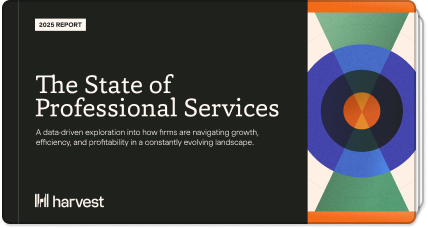 In this four-part series, we’ll explore how engineering managers can impact employee retention, company culture, collaboration, and productivity by helping engineers feel a sense of belonging at work.
In this four-part series, we’ll explore how engineering managers can impact employee retention, company culture, collaboration, and productivity by helping engineers feel a sense of belonging at work.
Having a sense of belonging is a core human need. It’s crucial to our happiness and mental and physical health. It provides us with a sense of purpose and meaning, and the social ties that come with feeling like one belongs help us to manage stress.
Helping engineers feel a sense of belonging at work has benefits for both the team and the business. Cultivating collaboration and creating a highly engaged team requires a psychologically safe working environment where team members are comfortable being themselves and feel accepted by their colleagues.
As Coqual's Belonging Series “The Power of Belonging: What It Is and Why It Matters in Today's Workplace” explains, a sense of belonging at work requires four core elements:
- being seen for your unique contributions;
- connection to your coworkers;
- support in your daily work and career development; and
- being proud of your organization’s values and purpose.
What does this look like for engineers? How can you help ensure they feel a sense of belonging? Let’s take a closer look at these from an engineering standpoint.
Helping Ensure Engineers are Seen for Their Unique Contributions
In this first post, we’ll focus on the first core element of belonging and suggest ways that engineering managers can ensure that engineers feel seen.
Being seen for your unique contributions
When you feel seen for your unique contributions, you feel recognized, rewarded, and respected by your teammates.
There are several ways that engineering managers can help, including:
- Giving engineers equal opportunity to work on high-profile projects that align with their interests - There may be times when a project’s complexity or required skills might be a factor in determining who should be assigned to the project, however, opportunities for high-profile projects should be equally provided to all team members. Some projects naturally offer higher visibility than others, regardless of their complexity.
Not every engineer cares about visibility, but it’s important their manager is ensuring their work is not falling under the radar and their unique contributions are being recognized.
Also, if there's an opportunity for an engineer to learn a skill that aligns with their interests in a particular project, try to make that happen. If there’s a concern about jeopardizing the timeline or quality of the project, it could make for a great mentorship opportunity for the engineer to pair or shadow a more senior engineer on the project. Aim for aligning learning opportunities with interests.
- Asking skilled engineers to be multipliers - Regardless of their level on your company’s career ladder, if you have an engineer with a unique skill that could benefit the entire team, ask them to serve as a multiplier by teaching that skill to others. It serves two purposes: 1) It creates higher visibility for that engineer’s skill and expertise, and 2) It creates an opportunity to cross-train and grow the team.
Depending on time availability, this cross-training could happen in a variety of ways: educational brown bag lunch sessions, recorded demos, documentation, or pairing, for example. It doesn’t always require a formal 1:1 mentorship relationship and it doesn’t have to be time-consuming for the mentor.
- Giving praise/kudos/thanks in a public forum - Be sure to ask the engineers on the team if they’re comfortable with public recognition first! For some, this can feel embarrassing and they may feel more appreciated with direct recognition for their contributions in a private 1:1 instead.
- Asking engineers to keep an “accomplishment journal” - Discuss the items that they add to their journal. These are things they’re personally proud of completing. Whether these items are significant to project outcomes or other people has no bearing. From the engineer’s perspective, these are personal achievements and they can often shed light on an engineering manager’s blind spots. As an engineering manager, you can learn a lot about what an engineer values and where they believe their opportunities for growth lie by the items they include in their accomplishment journal.
- Providing opportunities for engineers to demo their work - Not every engineer enjoys presenting to an audience, but some might appreciate the opportunity to share what they’ve created. One way to enable engineers to share their work without experiencing the ‘stage fright’ that could come with presenting is to ask them to record a screencast then share that recorded demo with the company. It’s a little less pressure and still accomplishes the goal of amplifying their voice and creating visibility for the engineers’ unique contributions.
What to Avoid
- Using leaderboards that rank engineers and creating a competitive environment. Just say NO to leaderboards. If you need a metric like “number of PR reviews conducted” or “time to close a PR from open to merge” then limit the comparison of that metric over time to the individual and ensure there’s written context included with the evaluation of that metric. Most metrics are meaningless when presented as a standalone number without any supporting facts or consideration for things like sabbaticals, parental leave, context switching, or other responsibilities engineers might take on at the time. For example, if an engineer is spending a great deal of time helping to interview candidates for a future hire, that will impact the time they have to perform PR reviews. Always compare an individual’s performance to their own history with current events in mind – not to another engineer’s performance.
While some engineers might be motivated by competition, it can feel incredibly hostile to others. Each of us brings unique strengths to the team. Celebrate those unique strengths. - Giving public praise that doesn’t align with company values - Make sure the behavior you’re calling out when giving praise/kudos/thanks is in line with your company’s values. If your company honors work/life balance and you give a huge thank you to a team member for working 65 hours last week to meet a deadline, recognize that you’re sending out an incongruent message to your team. Either the company embraces work/life balance as a value OR they value employees who work overtime to get things done. If there’s a way to honor both (such as ensuring the team is using flex time or awarding extra vacation days), make your gratitude known in a way that aligns with your company’s values. As a whole, understand that publicly recognizing specific behaviors can be viewed as a signal for expected behavior. Be clear about what it is you value about the engineer’s behavior or accomplishment when giving praise/kudos/thanks. Ensure it aligns with a company goal or value.
These are just a few of the ways engineering managers can amplify engineers’ voices, draw attention to the unique value they bring to the company, and highlight their contributions. As human beings, knowing that our unique contributions are seen and valued helps create a sense of belonging.
Next week, we’ll explore how facilitating connections for coworkers on your team can also foster belonging.















